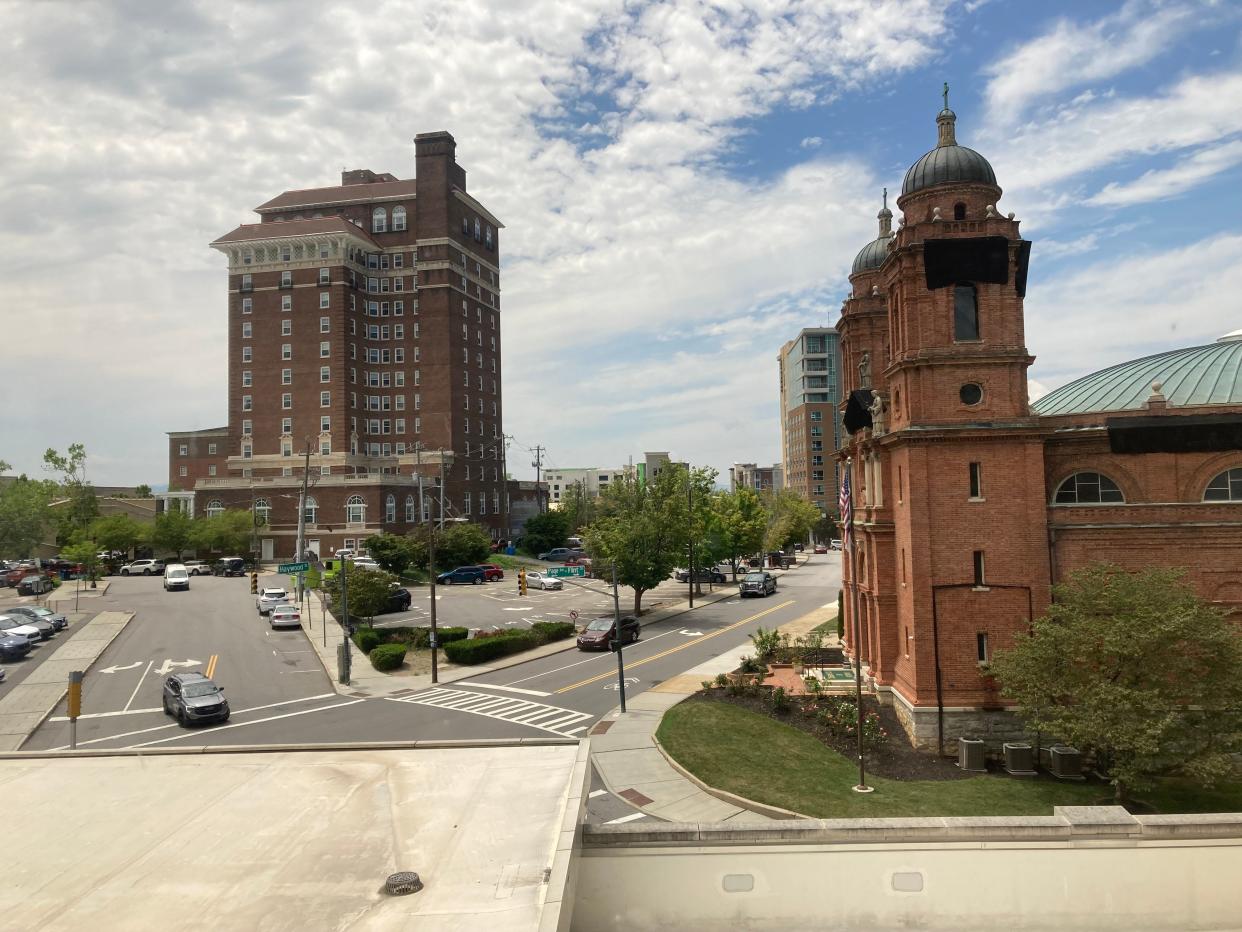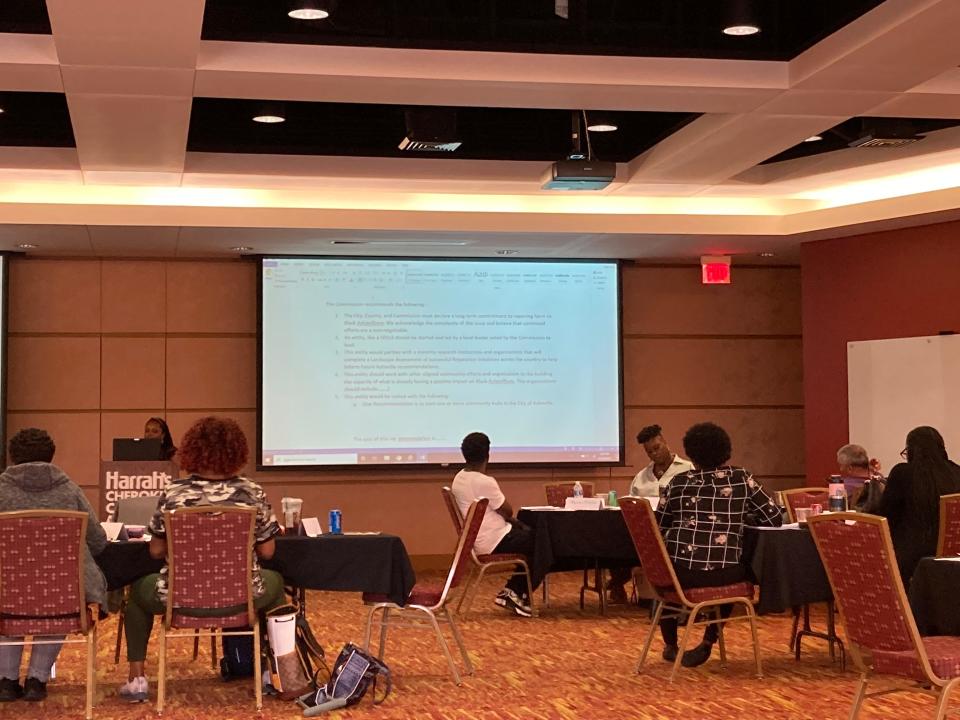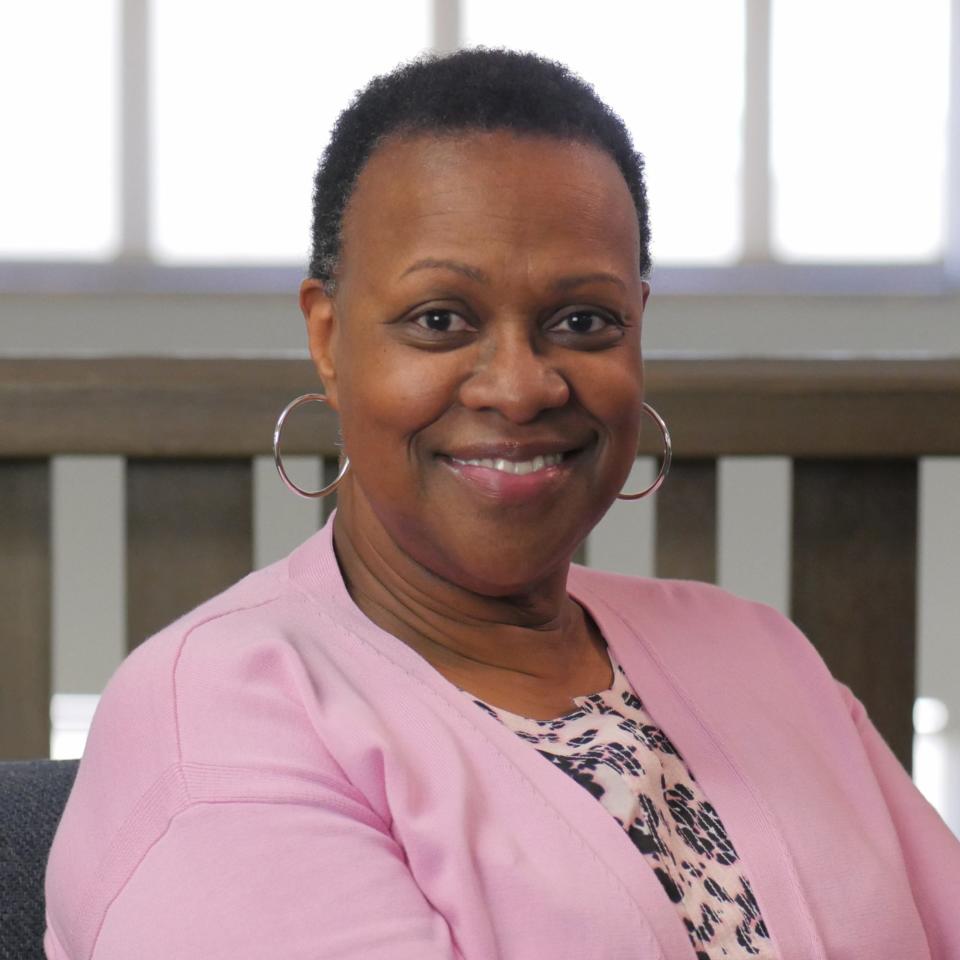Asheville reparations: Group selected to perform city, county audit with $174K contract

ASHEVILLE - After the city and county's reparations commission asked for a comprehensive audit of local governments to ensure harms impacting the area's Black community have actually been stopped, the county and city have promised to deliver with a $174,375 contract.
Florida-based Carter Development Group has been selected to conduct a “Stop the Harm” audit on the internal and external programs for both agencies, according to a July 28 news release from the county.
“When trying to advance racial equity, organizations often tend to look from present forward,” Buncombe Assistant County Manager DK Wesley said in the release.
“The truth is that our institutions are very old, which means that we have policies, procedures, and programs that were built with no equity lens and were possibly intentionally designed to disadvantage. That’s why this audit is so important — it allows us to stop, look at where we are as well as back from where we came so we can forge a more equitable future. We welcome this objective evaluation by Carter Development.”
The Carter Development Group was scheduled to begin work Aug. 1. A report of preliminary findings is expected by the end of December. The contract runs through April 30.
The interlocal agreement shares the contract cost of $174,375 between the city and county and will be funded through the dollars already designated for reparations.
More: What does reparations mean? 8 months into process, Asheville still finding its way

What is the 'Stop the Harm' audit?
The ask for an audit was among the 25-member board's first recommendations carried forward to Asheville City Council and Buncombe County Commissioners.
Dubbed "Stop the Harm," it requests an official third-party audit of both the city and county to ensure compliance with federal and state laws, regulatory bodies, codes of conduct, court orders and consent decrees confirming that further harm against Black residents has ended.
It also calls to stop any ongoing harm due to intentional and unintentional policies, programs and practices.
Following the approval of an interlocal agreement for the Community Reparations Commission Audit by council members and commissioners, Carter Development Group was selected, a research, consulting, and inclusive leadership development firm that specializes in diversity, equity and inclusion.
Headed by Adrian Carter, the release said the group has more than 20 years of experience, and former clients include Brookline, Massachusetts; the University of Washington; Broward County Public Schools in Florida; and the Arlington Independent School District in Texas.

The audit was first recommended by the Community Reparations Commission at its Dec. 5 meeting, seven months into the historic initiative.
More: Stop the harm: 1st Asheville Equity and Engagement Council meeting OKs reparations request
As proposed, the audit would also provide key data to help the commission make further policy recommendations to the city and county, which is the intended purpose of the commission, officially seated in April 2022.

The initiative empowers the commission to make short, medium and long-term recommendations that will make progress toward repairing the damage caused by public and private systemic racism, according to the Community Reparations Commission's mission statement.
Of the audit, Brenda Mills, the city's director of Equity and Inclusion, said in the release, "Any review that helps us achieve our goal of understanding, analyzing, and eliminating the root causes of racial disparities, and advancing equitable policies, practices, and procedures is a welcomed and deliberate step forward for our community.”
What comes next for Asheville, Buncombe reparations?
On July 29, members of the reparations commission met in a five hour retreat intended to focus in on the work of the commission as the deadline for final recommendations nears. Though the commission has been seated for 15 months, some of the same conversations still persist, such as what reparations really means for Asheville and Buncombe County, the lingering question of direct payments and what comes next after the first wave of work is over.
The process has been plagued by complications, including monthslong delays in seating the commission and an abrupt change in project management, as president of consulting firm TEQuity, Debra Clark Jones, publicly announced Nov. 7 that she would step down from management of the process.
The $365,583 contract was reassigned by City Council Nov. 15 to Charlotte-based Civility Localized, helmed by Christine Edwards.
They have also faced struggles to get necessary data in hand and pushed for reparations funding to be included in both the city and county budgets in perpetuity.
At the retreat, in the final minutes, members heard a brief update from Edwards on the timeline for the coming months.
Beginning at its Sept. 8 meeting, members of the five Impact Focus Areas — breakout groups that target criminal justice, economic development, education, health and wellness and housing — will begin presenting their final recommendations for a full vote from the commission.
The commission will pass recommendations in rounds, conducted via majority vote, and if passed, they will be sent forward to the city and county. In the meantime, more public meetings will be held with the intention of opening up the process to community members to listen, observe and participate.
City and county staff will also review recommendations as they come.
From February to April, Edwards said, final recommendations would be compiled and presented and shared with the public, and the project manager will lead the development of the reparations action plan. Project closeout is scheduled for April.
Sarah Honosky is the city government reporter for the Asheville Citizen Times, part of the USA TODAY Network. News Tips? Email shonosky@citizentimes.com or message on Twitter at @slhonosky. Please support local, daily journalism with a subscription to the Citizen Times.
This article originally appeared on Asheville Citizen Times: Reparations: Asheville, Buncombe subject to 3rd-party audit of harms

